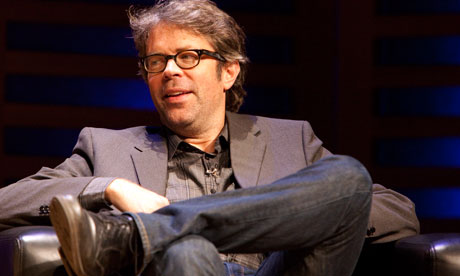Jonathan
Franzen once penned a famous essay in Harper’s titled “Perchance to Dream: In the Age of Images, a Reason to Write Novels.” There is a helluva lot to chew on
in that article, but among them, there is also this smidgeon of empirical
research on readers that I really found interesting.
“Shirley Brice Heath is a former MacArthur Fellow, a linguistic anthropologist, and a professor of English and linguistics at Stanford; she’s a stylish, twiggy, white-haired lady with no discernible tolerance for small talk. Throughout the Eighties, Heath haunted what she calls “enforced transition zones”—places where people are held captive without recourse to television or other comforting pursuits. She road public transportation in twenty-seven different cities. She lurked in airports (at least before the arrival of CNN). She took her notebook into bookstores and seaside resorts. Whenever she saw people reading or buying “substantive works of fiction” (meaning, roughly, trade-paperback fiction), she asked for a few minutes of their time.
“…her research effectively demolishes the myth of the general audience. For a person to sustain an interest in literature, she told me, two things have to be in place. First, the habit of reading works of substance must have been “heavily modeled” when he or she was very young.
“…According to Heath, young readers also need to find a person with whom they can share their interest.
“…I told her I didn’t remember either of my parents ever reading a book when I was a child, except aloud to me.
“Without missing a beat Heath replied: “Yes, but there’s a second kind of reader. There’s the social isolate—the child who from an early age felt very different from everyone around him. This is very, very difficult to uncover in an interview. People don’t like to admit that they were social isolates as children. What happens is you take that sense of being different into an imaginary world. But that world, then, is a world you can’t share with the people around you—because it’s imaginary. And so the important dialogue in your life is with the authors of the books you read.
“…According to Heath, readers of the social-isolate variety are much more likely to become writers than those of the modeled-habit variety.”









